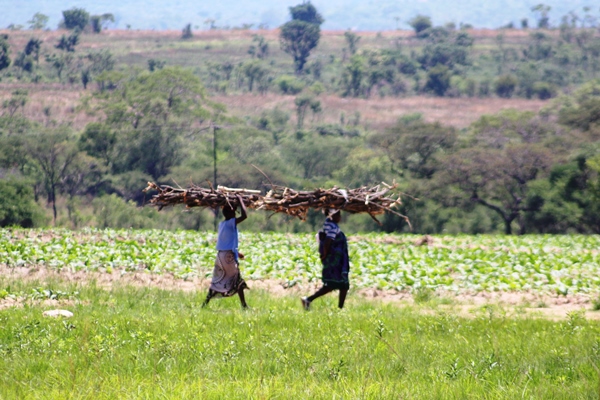Greetings, ImactAlpha readers!
Featured: Impact Voices
How opportunity zones can expand access to fresh food in America’s food deserts. Supermarkets and grocery stores that provide access to fresh and healthy food are often missing from lower-income areas of the U.S. As it happens, many such “food deserts” overlap newly designated opportunity zones, the low-income census tracts designated under last year’s tax bill, into which certain investments qualify for capital-gains tax breaks. “Equity from opportunity zone investments could be a significant boost to sparking new grocery locations in underserved communities,” write Don Hinkle-Brown and Ira Goldstein of Reinvestment Fund, the Philadelphia-based community development financial institution that has invested $300 million in 180 healthy-food access projects across the country.
Overlaying areas of “Limited Supermarket Access” on a map of new opportunity zones in Newark, N.J., for example, shows a community of nearly 20,000 people who travel twice as far to buy food as more middle-income residents. Residents’ estimated retail food demand is $24 million; local supply is only $6.3 million. That means high-quality, proprietors could expect annual revenues of more than $17 million per year just from local residents, say Hinkle-Brown and Goldstein. “Yes, supermarket investments are difficult and potentially more risky in lower income areas than the tony areas of many cities or suburban communities,” they write in a guest post on ImpactAlpha. Opportunity zone tax advantages can mitigate that risk, they suggest, and “seed under-invested communities with resources and assets.”
Keep reading, “How opportunity zones can expand access to fresh food in America’s food deserts,” by Reinvestment Fund’s Don Hinkle-Brown and Ira Goldstein on ImpactAlpha. Catch up on ImpactAlpha’s industry-leading coverage of opportunity zones here.
Series: The Little Jed Book
From ignorant to mutual. In his new book, The Purpose of Capital, impact investing pioneer Jed Emerson gets serious about the dualism between self and Other (spoiler alert: it’s an illusion). “It is our great misfortune we live in a world of flowing ignorance, punctuated by pinnacles of insight,” Emerson writes. “Despite our current rhetoric, we live in a world where most of the positive impact of our capital results as a function of this ignorance—not because of our deliberate and insightful strategy.” Read today’s sampler.
Dealflow: Follow the Money
Salesforce commits $10 million for climate startups. The software company started its $50 million Salesforce Impact Fund last year. By 2022, the fund aims to investment $10 million to support entrepreneurs targeting clean energy, resource efficiency and better supply chains (and that use Salesforce’s technology platform). Themes for the fund track with commitments Salesforce has announced for its own business. Check it out.
California Clean Energy Fund invests in Indian solar through cKers Finance. The California Clean Energy Fund made a $3 million commitment through a Sustainable Energy Bond floated by Delhi-based cKers. India is trying to build 40-gigawatts of solar power by 2022. Capital raised by cKers (pronounced “seekers”) supports residential and commercial pay-as-you-go solar, micro- and mini-grids, and new energy service company models. Dig in.
Signals: Ahead of the Curve
Insuring the world’s small farmers to boost incomes and food security. Fewer than one in five smallholder farmers have agricultural insurance. Some 270 million small farmers in developing countries require coverage for about $80 billion in farm inputs (and even more for their labor and harvest value). That represents an annual premium value of between $8 billion and $15 billion, according to a landscape analysis from ISF Advisors (formerly the Initiative for Smallholder Finance).
- Risking prosperity. Small farmers on small plots are subject to health shocks, market fluctuations, severe weather and pests. Such risks limit income and economic advancement by causing farmers to underinvest in their own productivity, including in seeds, mechanization and irrigation. “Without adequate access to financial services— both credit and risk-management options— farmers simply do not make these investments,” write the authors.
- Swiss-based Pula is among the companies tapping the large, and largely unserved, market for smallholder-friendly agricultural insurance. Backed by Accion Venture Lab, Omidyar Network and a half dozen other investors, Pula has insured more than 600,000 small farmers in Kenya, Rwanda, Uganda, Nigeria, Ethiopia and Malawi for their seeds, fertilizer, credit and other farm inputs. Automatic payments are based on satellite and yield data.
- New models. Advancements in tech, data and computer modeling are eliminating the costs of in-person farm visits by shifting to index-based products based on weather, satellite and area-yield data. Caveat: These new products “can be limited by their reliance on technology and skills that are difficult or impossible to access in some geographies.”
- Share this post.
Agents of Impact: Follow the Talent
Ford Foundation’s Xavier de Souza Briggs joins the board of the Global Impact Investing Network… Dan Zook is the new executive director of ISF Advisors (see Signals above)… Erinch Sahan of World Fair Trade Organization explores business models for fair trade enterprises in Transform Finance’s Sept. 26 webinar (the pre-read)… AccountAbility is hiring managers in New York and London.
— September 19, 2018.











